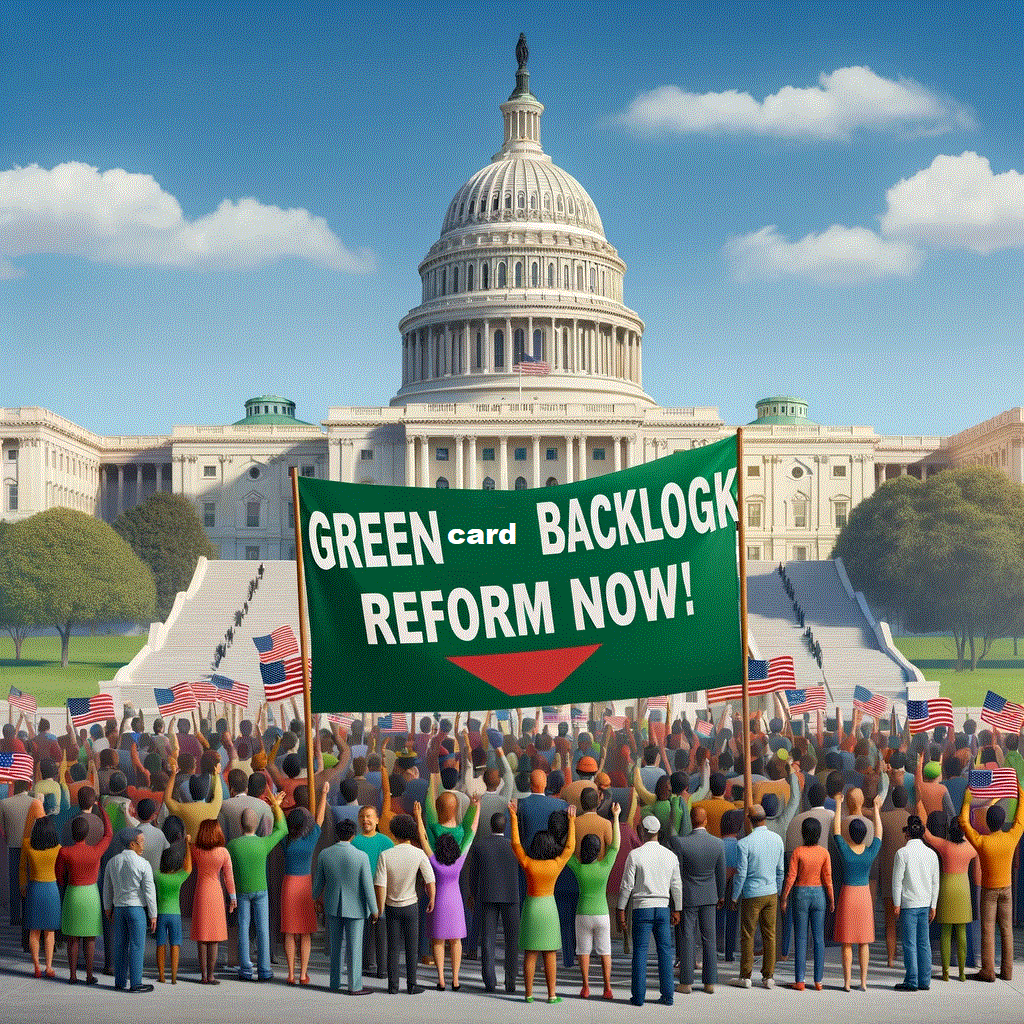The United States’ legal immigration system is facing a critical issue with the green card backlog, which has significant human and economic implications. This backlog, which has been building for over a century, affects millions of individuals and families, with particularly severe consequences for employment-based green card applicants, especially those from countries like India.
Human Impact: The human cost of the green card backlog is profound, especially for families. Children of legal immigrants, who have grown up in the U.S., face the risk of aging out of their dependent status when they turn 21. This can lead to a precarious situation where they must switch to a student visa, which has its own set of challenges, including proving non-immigrant intent despite having lived in the U.S. for most of their lives. If these young adults are unable to secure an H-1B visa due to the annual cap, they may find themselves in a never-ending limbo, unable to fully integrate into the workforce or society.
Economic Impact: From an economic perspective, clearing the green card backlog could result in significant gains. According to a report by the Bipartisan Policy Center, clearing the employment and family-based backlogs could lead to $3.9 trillion in GDP gains over the next 10 years. The majority of this benefit comes from new entrants into the country, who can help address workforce shortages and contribute to economic growth. However, adjustments of status for those already in the U.S. also have a positive impact, as it allows them to take a wider variety of jobs and advance in their careers.
Policy Solutions: Addressing the green card backlog requires a multifaceted approach. Key policy solutions include:
- Increasing Annual Green Card Limits: Raising the caps on employment-based and family-based green cards would directly address the cap-based backlog.
- Improving Processing Efficiency: Providing more resources for visa processing would help reduce the processing backlog.
- Child Status Protection Act (CSPA) Reforms: Amending the CSPA to better protect children who age out due to the backlog could prevent them from falling into precarious immigration statuses.
- State-Based Visa Programs: Introducing state-based visa programs could help distribute the benefits of immigration more evenly across the country and address specific regional workforce needs.
Conclusion: The green card backlog is a complex issue with deep human and economic implications. While there are clear policy solutions that could alleviate the backlog, it requires political will and bipartisan cooperation to enact meaningful reforms. Addressing this issue is not only a matter of fairness and compassion for those caught in the backlog but also a strategic investment in the future of the U.S. economy.

